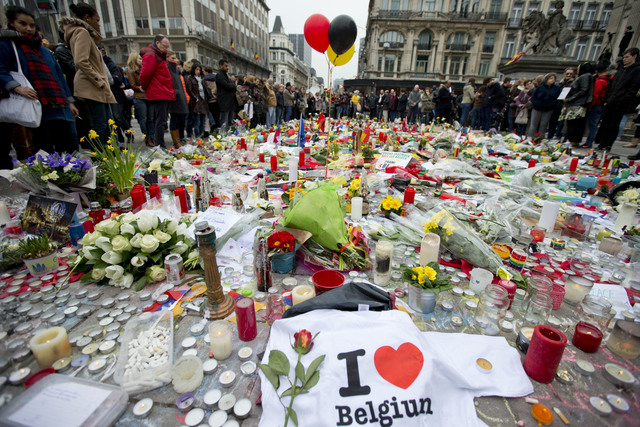What it means to ‘exercise vigilance’

Government travel advisories and warnings often follow terrorist attacks and unrest, urging travelers to “exercise vigilance.”
For places like Syria, engulfed in civil war, avoiding the destination altogether seems like the most vigilant course of action. But what’s a traveler to do with generic governmental guidance for travel to mostly peaceful countries?
After Tuesday’s attacks on Brussels Airport and the Maelbeek metro station, the U.S. State Department issued a travel alert warning U.S. citizens traveling in Europe to “exercise vigilance” in public places and on mass transit.
“Be aware of immediate surroundings and avoid crowded places. Exercise particular caution during religious holidays and at large festivals or events,” the alert says.
The British government also warned its citizens to be vigilant when visiting Belgium, which has been placed at threat level 4, which warns of “a serious and imminent threat.”
So how does “vigilance” translate for the traveler?
Before you go
Pick flights at times when the airport isn’t busy, says Edward Clark, senior security consultant at iJET International, a travel-risk-management firm that offers travel security training. “It may not be convenient, but it is just as undesirable for the threat.”
Upon arrival at the airport, get into a secure area as soon as you can, says terrorism expert Richard Bloom. And when you land, get out of the airport as soon as possible.
It helps to know where your embassies and consulates are in the countries you’re visiting, since many embassies will help their citizens when there’s unrest, says Bloom, Embry-Riddle Aeronautical University’s chief academic officer and director of terrorism, intelligence and security studies.
Bloom advises American citizens to register with the U.S. State Department’s Smart Traveler Enrollment Program, so the government knows where they are in case of trouble.
And family and friends back home should have copies of your itinerary.
Once you’re there
“Don’t be head-down in your cell phone, and try not to look like the confused tourist,” said security consultant Jeff Price of Leading Edge Strategies.
“In a foreign environment, know where you’re going before you leave your hotel, don’t dress like a tourist, with your passport and camera hanging around your neck, and when in a crowded area, be aware of who is around you.”
Crowds are admittedly hard to avoid, especially in popular destinations, so heightened awareness is key.
“Learn where to stand in the crowd and how to position yourself to limit your vulnerabilities,” Clark said. And if you don’t like who you’re around, pay attention to your intuition and move.
You can set up an app or use social media to communicate, share information and track other members of your party, Clark says, and carry a hard copy of a local map. (It will never lose a charge.)
In the worst-case scenario, Clark recommends that you “always be ready to leave on the next available means of transportation. This means having the money or credit cards, travel documents, passports, etc. with you at all times and a plan to link up with the rest of your party.”
The skeptic’s view
Extreme traveler, author and journalist Robert Young Pelton is skeptical of the government advisories.
“The warning means nothing, and there is little a traveler could do to point out or identify a threat even if they did follow this advice,” said Pelton, who wrote “The World’s Most Dangerous Places.”
In fact, it may be safer than ever to travel, Pelton said. “Take advantage of the increased security and relax,” he said.
Still apprehensive?
“If you’re nervous, stay away from large foreign hotels (U.S. brands) or popular advertised gatherings. Pick smaller, off-the-beaten-path places to visit. Terrorists typically choose well-known or crowded venues for deadly work,” he said.
Instead of visiting obvious tourist spots, go local and see where people actually live and work. Locals, Pelton said, “know who is who and if things appear odd. And you might even have a better holiday.”
But don’t tune out. Be aware of the news and keep your wits about you, recommends Lonely Planet editorial director Tom Hall, who is based on London. The advisory is “a way of advising travelers that it’s not completely business as usual.”
‘I don’t want the terrorists to win’
Beyond doing “the obvious things” — keeping family and friends aware of where she’s going, being aware of her surroundings, not taking packages from strangers and reporting suspicious bags — About.com air travel expert Benet Wilson doesn’t plan to change her behavior.
“Since 9/11, we live in a different world, where bad actors want to cause death and destruction in the name of their causes,” Wilson said. “They want people to be scared to travel.”
That’s something Wilson refuses to be.
The Charlie Hebdo attacks in Paris occurred a week after her family left the city. “People ask if I’ll take them back to Paris, and I say ‘yes’ without hesitation,” she said. “I don’t want the terrorists to win by making me afraid to travel.”












